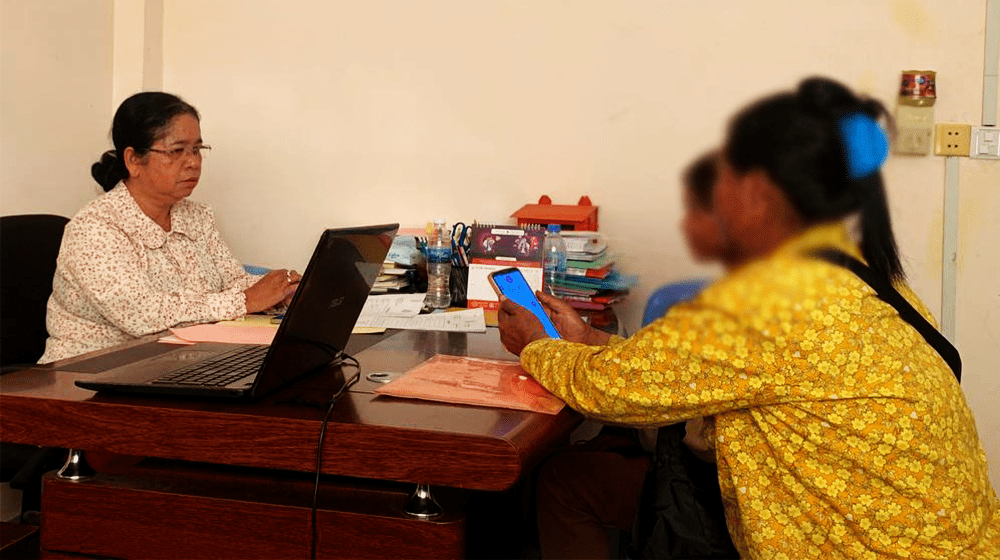In the last five years, Mrs. Phorn Keophon, a Deputy of the Department of Women's Affairs (PDOWA) in Preah Vihear, has been a force for good in the fight against gender-based violence (GBV). Keophon saw a critical need for coordinated action against GBV since the initiation of the strengthening GBV multi-sectoral coordination programme was introduced in her province and three others including Tboung Khnum, Kampong Cham and Stung Treng. Through a program supported by UNFPA, she received vital training on the Essential Services Package for Women and Girls Subject to Violence (ESP GBV). Following the training, she spearheaded the creation of the Provincial Working Group on GBV (PWG-GBV), mobilizing the sectors that respond to gender-based violence to collaborate.
Keophon’s efforts did not stop there. She replicated the model in three districts, securing local budgets (one district) and ensuring frontline service providers had basic GBV response knowledge. The results were tangible: more cases were received compared to the previous year. In 2023 she supported coordinated services to 65 GBV cases (30 sexual violence cases and 35 domestic violence cases) this was compared to 30 cases the previous year before the training. Looking beyond policies, Mrs. Keophon provided direct support to survivors. In one case, she facilitated medical care, legal representation, and vocational training for a young survivor of rape providing her the services and support needed to rebuild her life. Mrs. Keophon's story is a powerful testament to the impact dedicated individuals can have. Her model of bringing services together in a survivor centered and coordinated approach offers a blueprint that can be replicated across the country towards ensuring that all survivors of violence get the services, support, and care they need.
“I am happy to help women and girls who are survivors to get the services they need. I provide basic counseling to find out more about their needs on other services such as legal, health, psychological support, and safe shelter.”
Despite the success, hurdles remain. Remote areas pose logistical challenges, and poverty and remoteness can exacerbate women’s vulnerability. Yet, Ms. Keophon remains undeterred, actively seeking solutions to equip even the most isolated communities.
Ms. Phorn Keophon's story is a testament to the transformative power of individual leadership alongside coordinated multi-sectoral approaches. Ms Keophon’s role offers hope, support, and positive change in Preah Vihear to those impacted by gender-based violence. Her journey proves that change is possible when communities, institutions, and individuals unite to combat GBV.


